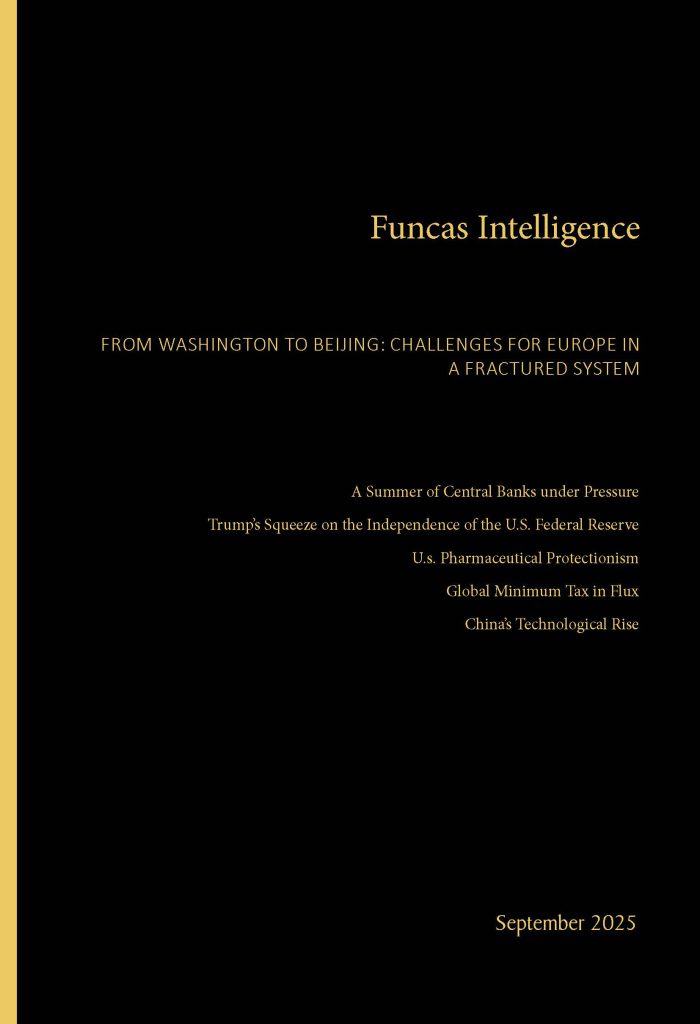From Washington to Beijing: Challenges for Europe in a Fractured System
Fecha: September 2025
Funcas Intelligence, September 2025
Sumario
Both the ECB and the Federal Reserve kept official interest rates unchanged at their latest meetings, against a backdrop of tariffs, policy uncertainty, and mounting tensions between the Fed and the Trump administration. At the Jackson Hole Symposium in late August, Jerome Powell signaled a long-anticipated rate cut in September, marking a shift in the Fed’s policy outlook.
President Trump’s unprecedented and controversial political pressure campaign to demand interest rate cuts is testing the institutional independence of the U.S. Federal Reserve. Capitulating to these demands risks triggering a crisis of credibility that could de-anchor inflation expectations, increase market volatility, and destabilize the U.S. and global financial system.
President Trump’s tariffs and price controls aim to lower U.S. drug costs, but the policies would also threaten some European economies and leave patients on both sides of the Atlantic with higher prices, drug shortages, and fewer innovative medicines. This transatlantic pharma trade war is forcing companies to shift investments to the United States, creating a high-stakes standoff that may benefit U.S. manufacturing at the expense of European industry and patient access to affordable drugs.
The landmark 15% Global Minimum Tax agreement, designed to promote a fairer international tax system, is fracturing due to a U.S. carve-out agreement that creates an uneven playing field for multinational firms. This growing divergence undermines the international framework, with the U.S. blocking implementation and the Global Minimum Tax effectively on hold, leaving the EU to contend with reduced tax revenues, internal policy disputes, and a competitive disadvantage for its firms.
The United States views China’s technological rise as an existential security threat, wielding sanctions and export controls like a “sledgehammer,” while the EU has adopted a more cautious approach to ensure it can continue to reap the economic benefits from China despite its increasing concerns about economic competitiveness and national security. Beijing is exploiting the EU’s divisions, and the bloc’s fragmented policies will leave some Member States vulnerable and dependent on Chinese technology.

